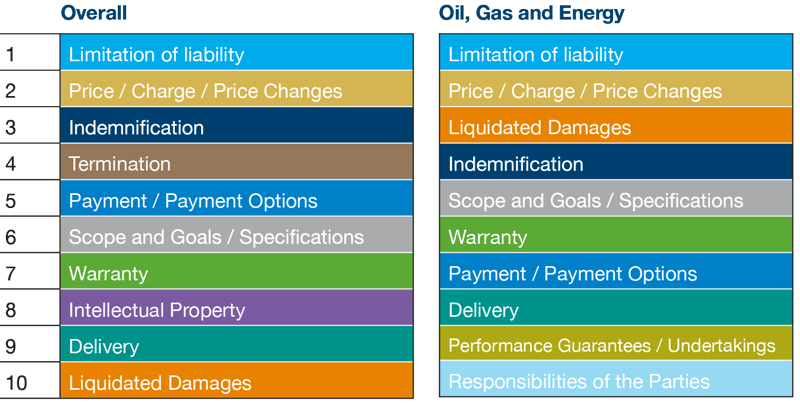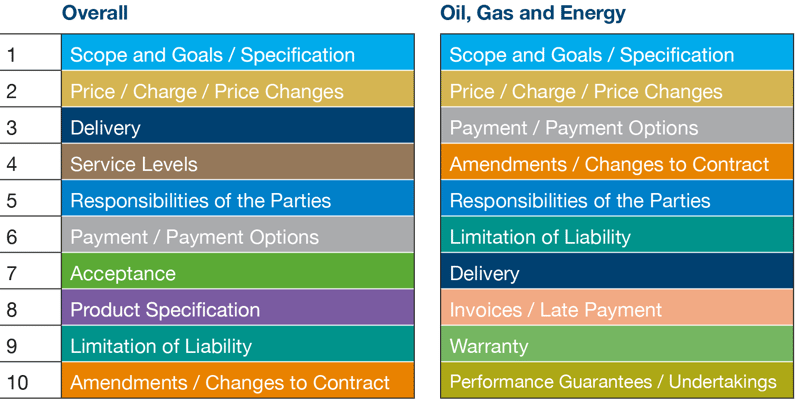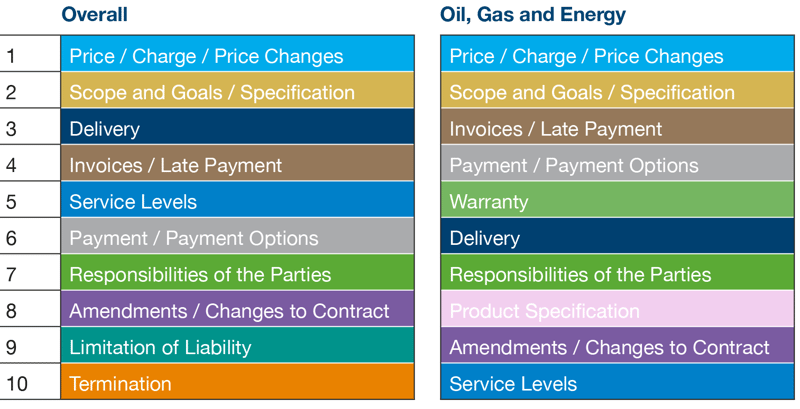Introduction
The oil and gas industry today is a sector in conflict, caught between a legacy of traditional contracting practices and the urgent need for transformation. For decades, negotiation within the industry has centered on relatively classical principles: allocating price and risk through formalised structures, relying heavily on established industry standards and well-trodden templates. This has made many aspects of negotiation relatively predictable, with recurring attention paid to liability, indemnities, price adjustments, and change control. Contracts have largely served as instruments of protection and allocation, especially under volatile market conditions.
But this traditional framework is now under pressure. A wave of disruption - economic, environmental, geopolitical, and technological - is reshaping the industry’s foundations. Relationships that were once stable are fragmenting or evolving. The balance of power between buyers and suppliers shifts more frequently and less predictably, and the supply chain faces mounting demands for resilience, adaptability, and shared risk. Legacy approaches are proving increasingly inadequate for a world that demands flexibility and speed.
The way that industry participants approach contract negotiation is a fundamental element in shaping the future. This report highlights the fact that change is slow and the focus still remains on control -handling failure and poor performance – rather than partnering for success. In this report, we compare three different types of terms:
- Most Negotiated Terms which focus on consequences of failure
- Most Important Terms which look at the factors that support success
- Most Disputed Terms which focus on issues related to conflict and disagreements, ultimately leading to poor performance
Most Negotiated Terms

Most Important Terms

Most Disputed Terms

In the oil and gas sector specifically, there are additional factors that may contribute to disputes:
1. Data and Knowledge Sharing Challenges
The industry faces challenges with inadequate technology leading to a lack of performance data. Organizations need to invest in digital systems that support integrated data flows and analytics. This can elevate the quality of contracting and allow rapid assessments of portfolio performance and areas of value leakage.
2. Operational Workload and Skills Gaps
The top barrier for improvement across industries is operational workload, but the oil and gas energy sector specifically faces greater concerns about:
- Establishing better data to indicate the value of Contract and Commercial Management (CCM)
- Existing skills gaps
- Quality of functional leadership
Building consensus across stakeholders is particularly difficult in the oil and gas industry due to:
- Contract management responsibilities being scattered across multiple people
- Multiple stakeholders having different levels of responsibility
- Relatively independent business units and divisions
Conclusion
- Agile, risk-resilient approaches to manage supply chain and geopolitical uncertainties
- Balanced contracts that foster transparency and fair risk allocation
- Skills that blend technical expertise (IQ) with emotional intelligence (EQ) and adaptability (AQ)
- Digital capabilities that enhance collaboration and provide real-time insights
- Frameworks for proactive conflict management that strengthen rather than damage relationships
Written by

An international, cross-industry career that has moved from corporate management to extensive research, advisory and capability development services to public, private and third sector organisations. Tim has lived and worked in the UK, France (3 years), and the United States (20 years), building an impressive research and entrepreneurial record with a demonstrated commitment to delivering social benefit. As Founder and President of World Commerce & Contracting (formerly International Association for Contract & Commercial Management), Tim has built a 72,000-member worldwide non-profit association which increasingly influences commercial policies and contracting practices in major corporations and governments. In September 2019, he was presented with the Financial Times ‘Market Shaper of the Year Award. Tim was, until recently, Professor and Chair of International Commercial & Contract Management at the University of Leeds, School of Law, where he taught and led the development of inter-disciplinary commercial programs. Prior to founding World Commerce & Contracting, Tim was on the Chairman’s staff at IBM Corporation and led the development of worldwide commercial processes and skills. His early career included management roles in the banking, automotive and aerospace industries, where he led negotiations up to $1.5 billion in value. He has served in advisory roles for government departments in various countries, including the US, UK, Australia, Canada, and Japan.
Resources

Research
Tap into 85 years of expertise in commercial and contract management. WorldCC's AI research reports are powered by the CCM Institute, leveraging insights from over 200,000 professionals. Gain unparalleled access to practical knowledge and cutting-edge analysis to navigate the evolving landscape of CCM. Explore our research and benefit from the collective wisdom of the industry.

Past Webinars
Since 2015, World Commerce and Contracting has been at the forefront of AI in contracting, collaborating closely with partners and members to provide invaluable guidance and education on the transformative power of AI in contracting. With a rich repository of over 80 webinars, our members gain exclusive access to an array of topics from AI and negotiation to ChatGPT for CLM.

Articles
Our Content Hub boasts an extensive collection of AI articles, delving into the transformative impact on contracting and commerce. As leaders in the field, we offer valuable insights and thought-provoking content, illuminating AI's revolutionary potential in the contracting landscape. Explore cutting-edge technologies and visionary strategies to thrive in the age of AI.
Become a member
Join now to access a range of benefits as part of the world's largest commerce and contracting community.
- Become part of a global community and connect with other members at events and on online forums.
- Participate in live webinars and sponsored webcasts with thought leaders and experts.
- Attend local networking groups and regional or international conferences.
- Access the latest research, reports, analytics, best practice templates and thought-leadership articles.
- Become certified with our globally recognized training programs.
- Gain one-on-one mentorship from our experts.
- Receive regular news and industry updates.
- Search and post jobs on our members job board.
- Raise your professional reputation by contributing to our Content Hub, joining working groups, speaking at conferences, and contributing to research.




